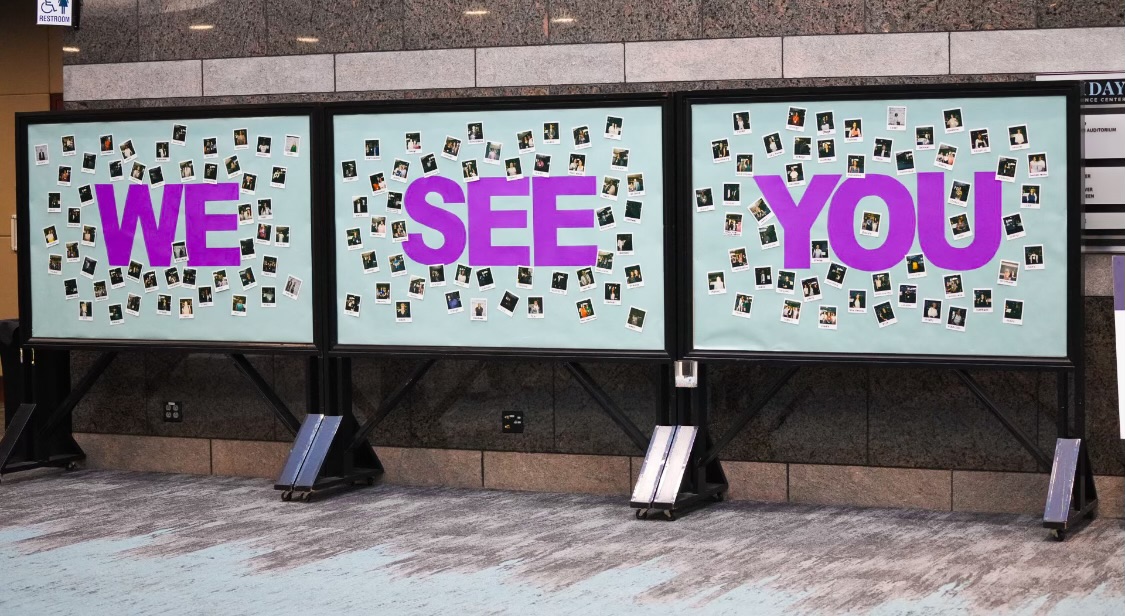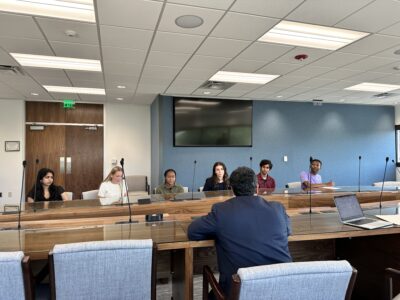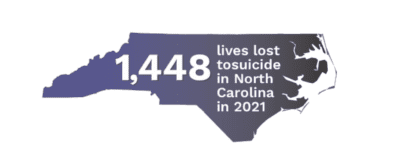
This article discusses mental health and suicide. If you or someone you know needs help, reach out to the National Suicide and Crisis Lifeline by calling 988.
Community leaders from across North Carolina gathered to share mental health and suicide prevention resources on June 13, as part of Carolina Across 100 and the UNC Suicide Prevention Institute’s Statewide Summit on Suicide Prevention.
The summit was held at the UNC Friday Center in Chapel Hill to share resources and help spark more local collaboration across the state. The event — “Our State, Our Wellbeing” — included about 400 attendees from more than 60 counties.
Attendees were driven to the cause by a desire to reduce suicide in our state. Nearly 1,500 people die by suicide in North Carolina annually, a figure that Carolina Across 100 said has risen by 40% since 2004.
“Our state has a wealth of resources ready to support community action on suicide prevention, with plans to continue partnering to fill gaps,” said Lead Carolina Across 100 Coordinator Anita Brown-Graham, who is also a professor at the UNC School of Government. “This Summit is all about bringing together leaders from across North Carolina to do more than any community could do on its own. It is how we plan to level up our efforts to meet staggering needs in North Carolina.”
![]() Sign up for the EdDaily to start each weekday with the top education news.
Sign up for the EdDaily to start each weekday with the top education news.
Carolina Across 100 is a five-year initiative by the office of the UNC-Chapel Hill Chancellor and coordinated by Brown-Graham and her ncIMPACT Initiative team.
Attendees of the summit were national, state, and local leaders. The event included a resource expo, and information on available trainings, programs, funding, and insights to help communities advance suicide prevention efforts.
The summit also highlighted work being done by 15 community teams from 24 counties, each of which have spent the last year participating in forums, webinars, and other shared learning experiences to bolster local suicide prevention efforts. The meetings were led by the UNC Suicide Prevention Institute and the UNC School of Government’s ncIMPACT Initiative team.
Dr. Patrick Sullivan, director of the UNC Suicide Prevention Institute, said the institute wants to scale up interventions that are already happening across the state.
“The power of ‘Our State, Our Wellbeing,’ is that it’s a grassroots organization,” Sullivan said in a video about the programming. “Instead of people from the top dictating what people are to do, we listen. … They know the situation on the ground better than we ever could.”
Rik Emaus, a team participant, spoke about the importance of the resources. Emaus founded TC Strong, a Transylvania County organization that participated in the program.
The organization was founded after the community suffered the loss of three teens who died by suicide in the latter half of 2021.
When TC Strong first started, Emaus said the organization did not have anyone to look to as a model. Being a part of “Our State, Our Wellbeing” has helped them find support and community.
“We don’t feel alone in that work,” Emaus said in the video. “What we needed was partnership, and what we got was partnership.”
Participants said the program also gave them ideas for interventions to implement in their area. One participant, Bettie Murchison, attended a forum about gun locks. Later, her team, Village of C.A.R.E., was able to partner with local barber shops to distribute gun locks for free in Wake and Franklin counties.
“They’ve been exposed to resources that many of them did not know existed. Through grant funds, they’re doing things that they otherwise might not ever be able to try,” Brown-Graham said. “We have worked really hard to accelerate evidence-based strategies — things that make sense for the unique context of each of our communities.”
Lydia Nichols said that she was able to start Youth Thrive and Integrated Wellness with grants from the program.
She now feels that they do not have to “reinvent the wheel.”
“We can’t lose any more of our babies, not on my watch,” Nichols said. “… I am so optimistic that the work that we’re doing is going to save, not just one, I believe we’re going to save a community.”
Mental health resources shared at the summit
- Calm America
- Zero Suicide
- Suicide Prevention Resource Center
- National Academy of Medicine
- Stop Solider Suicide
- National Organization for Arts in Health
- Broadleaf
- UNC Health Care Tar Heel Trauma
- i2i Center for Integrative Health
- CareNet
- JED Foundation
- Social Bridging NC
- NC Farm and Ranch Stress Assistance Network
- Cedar Oaks Clinic PLLC
- NC Statewide Telepsychiatry Program
- NC Families United
Additional resources also include this mental health dashboard, resources from the Centers for Disease Control and Prevention, and this data on suicide and self-inflicted injury.
Recommended reading



